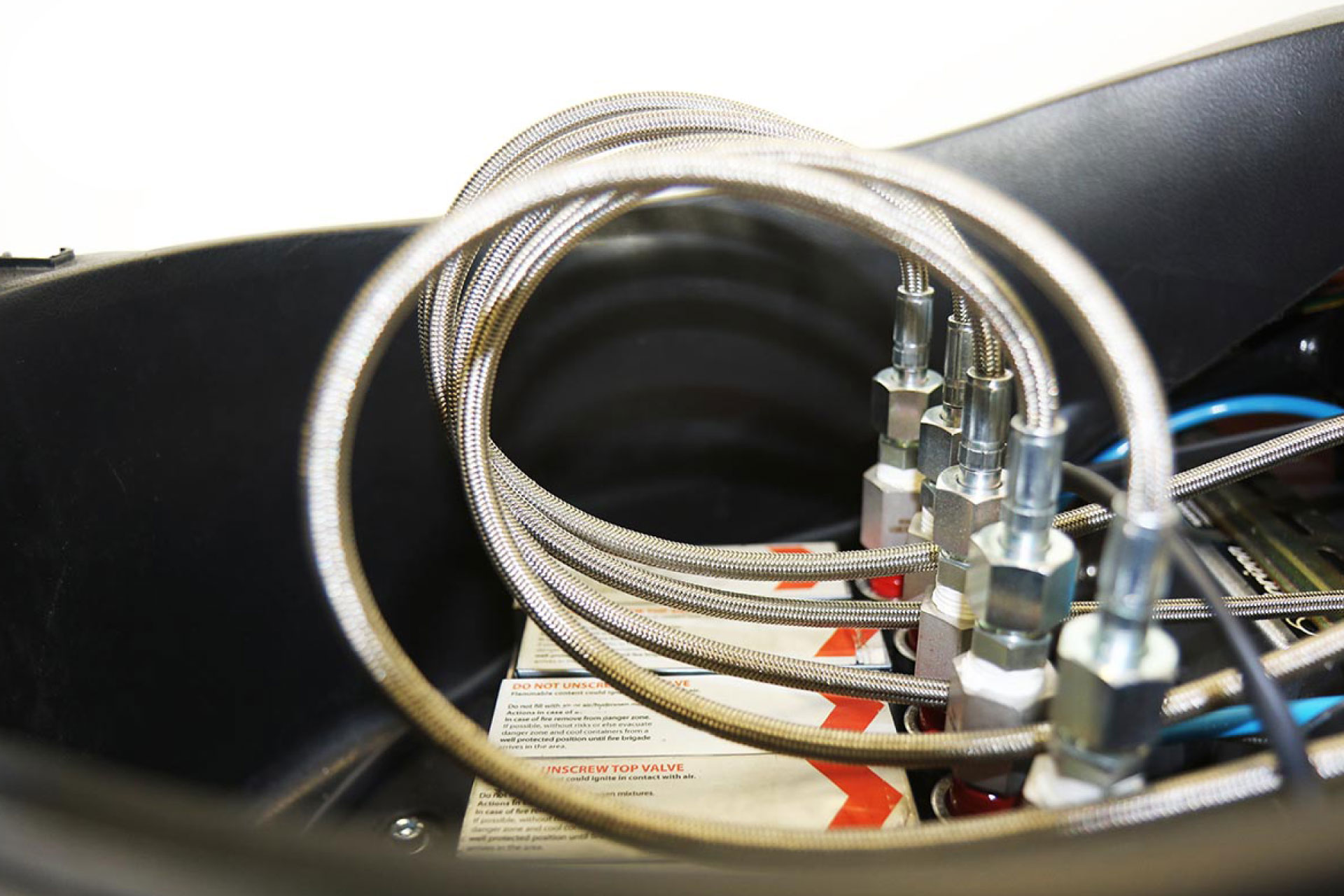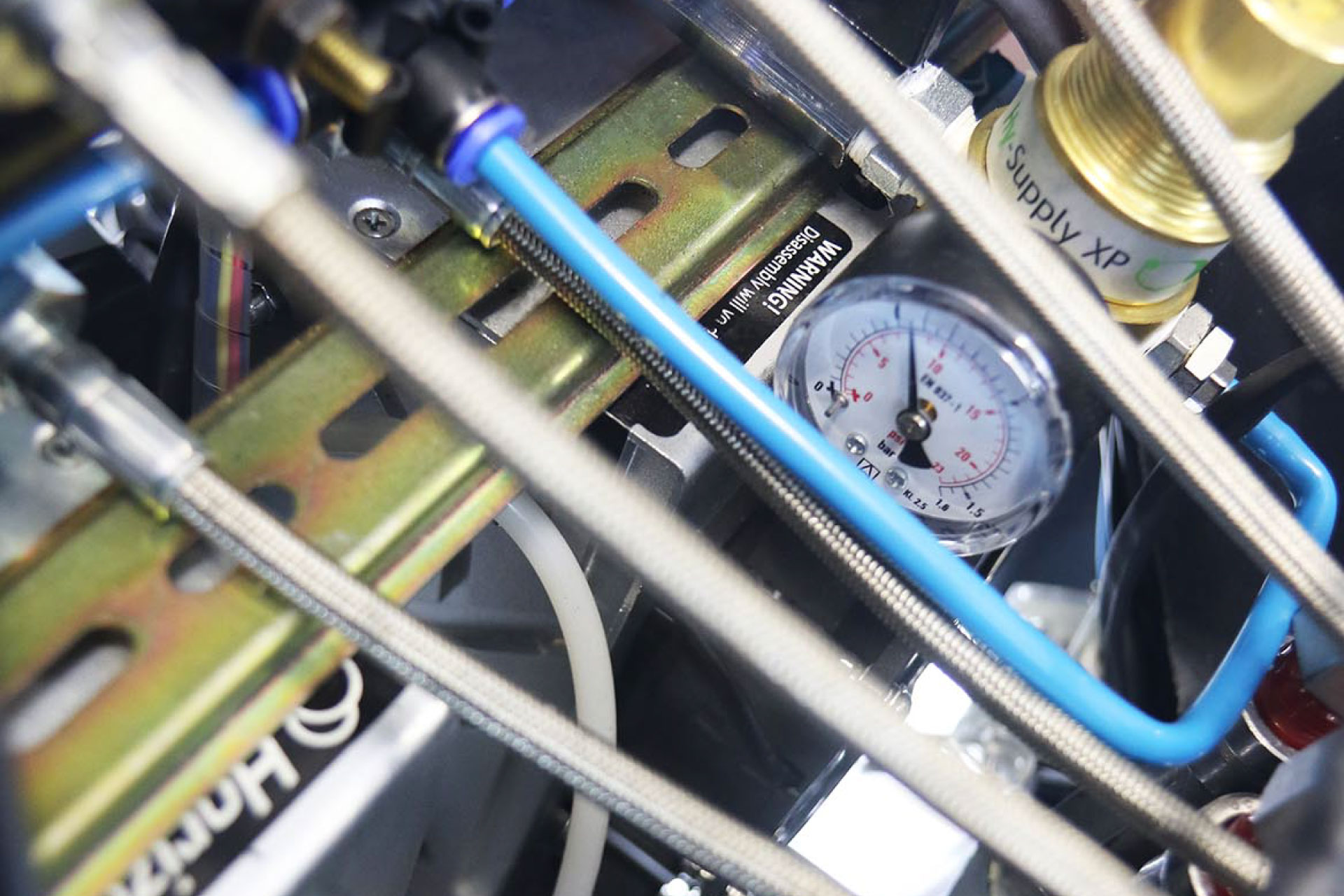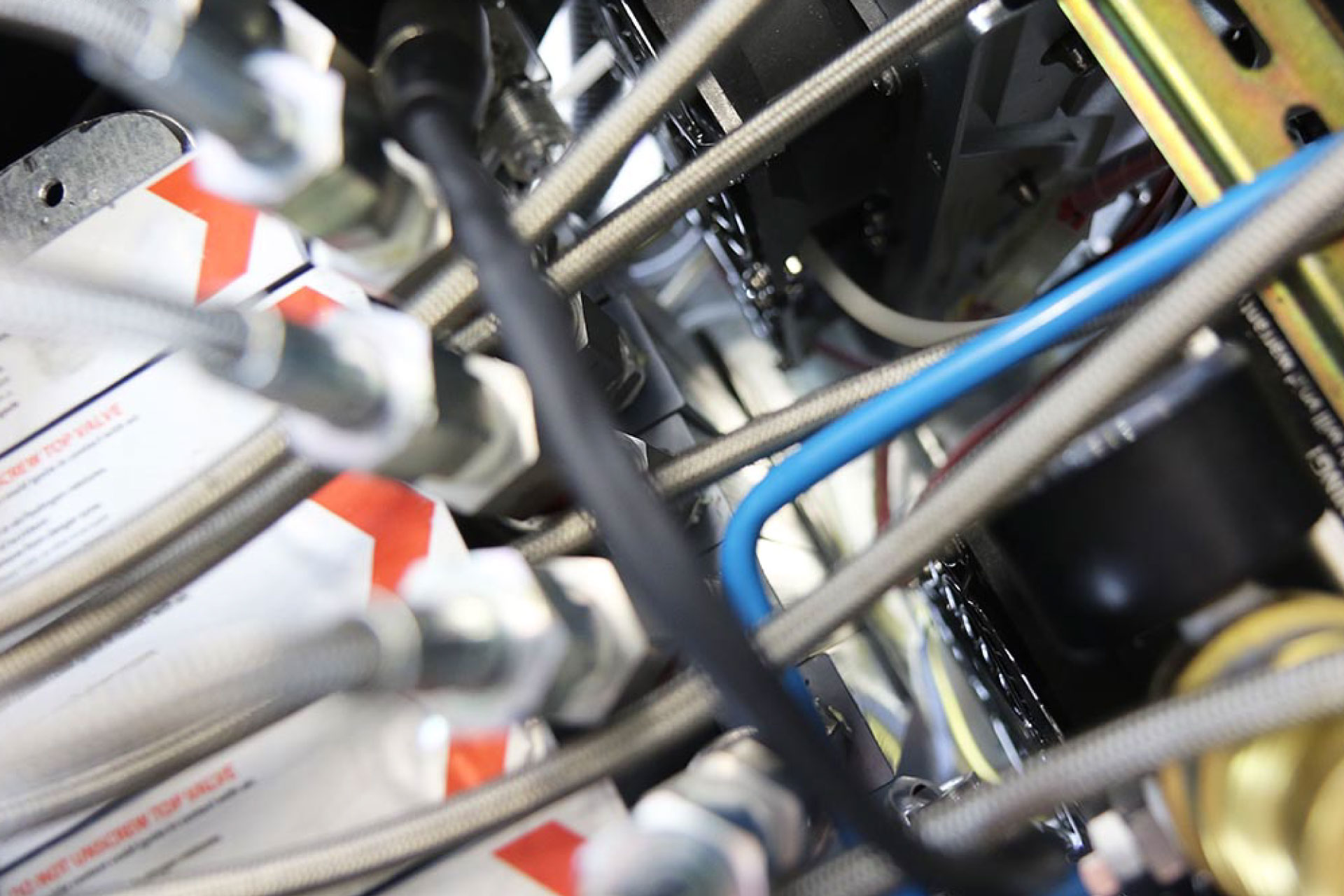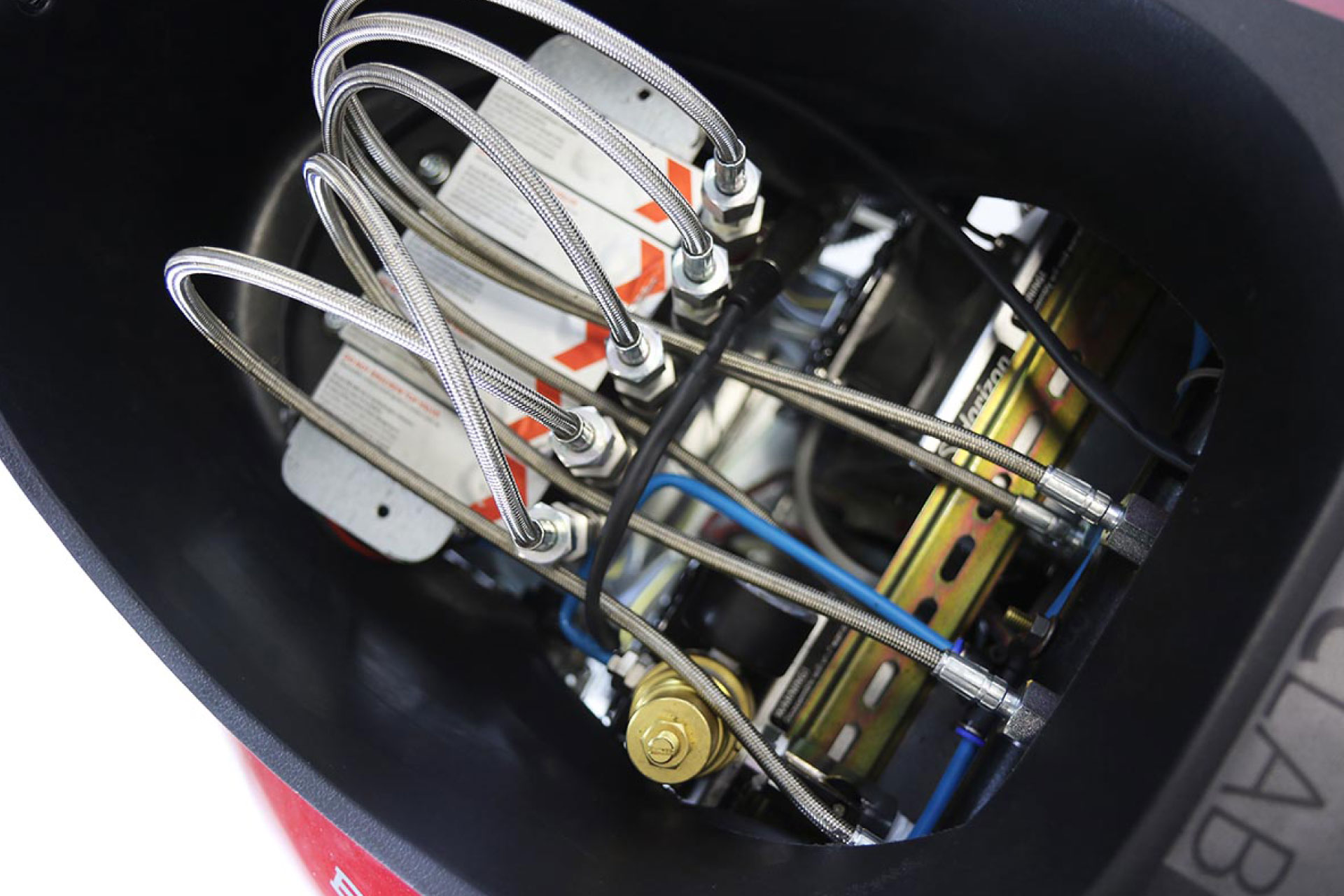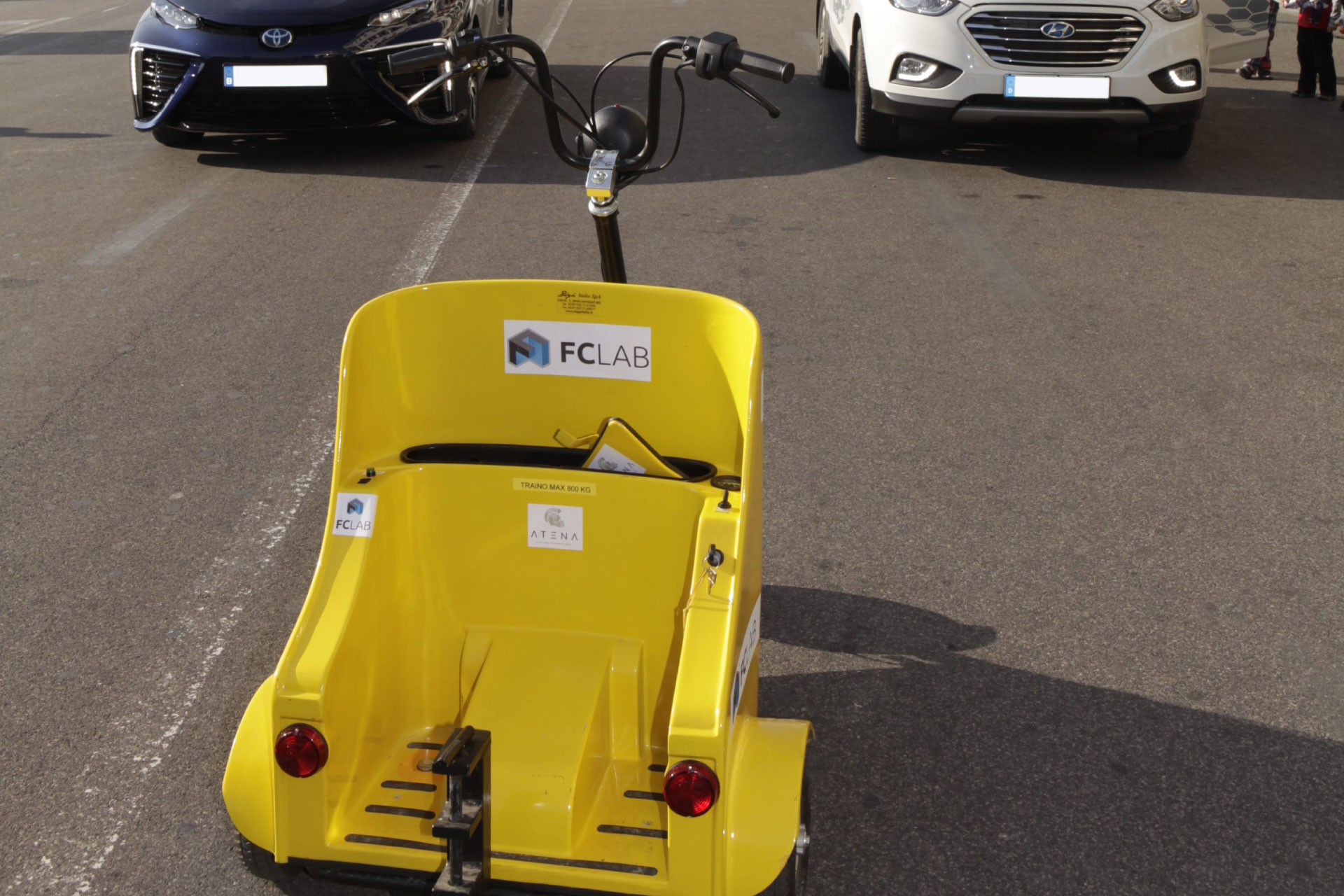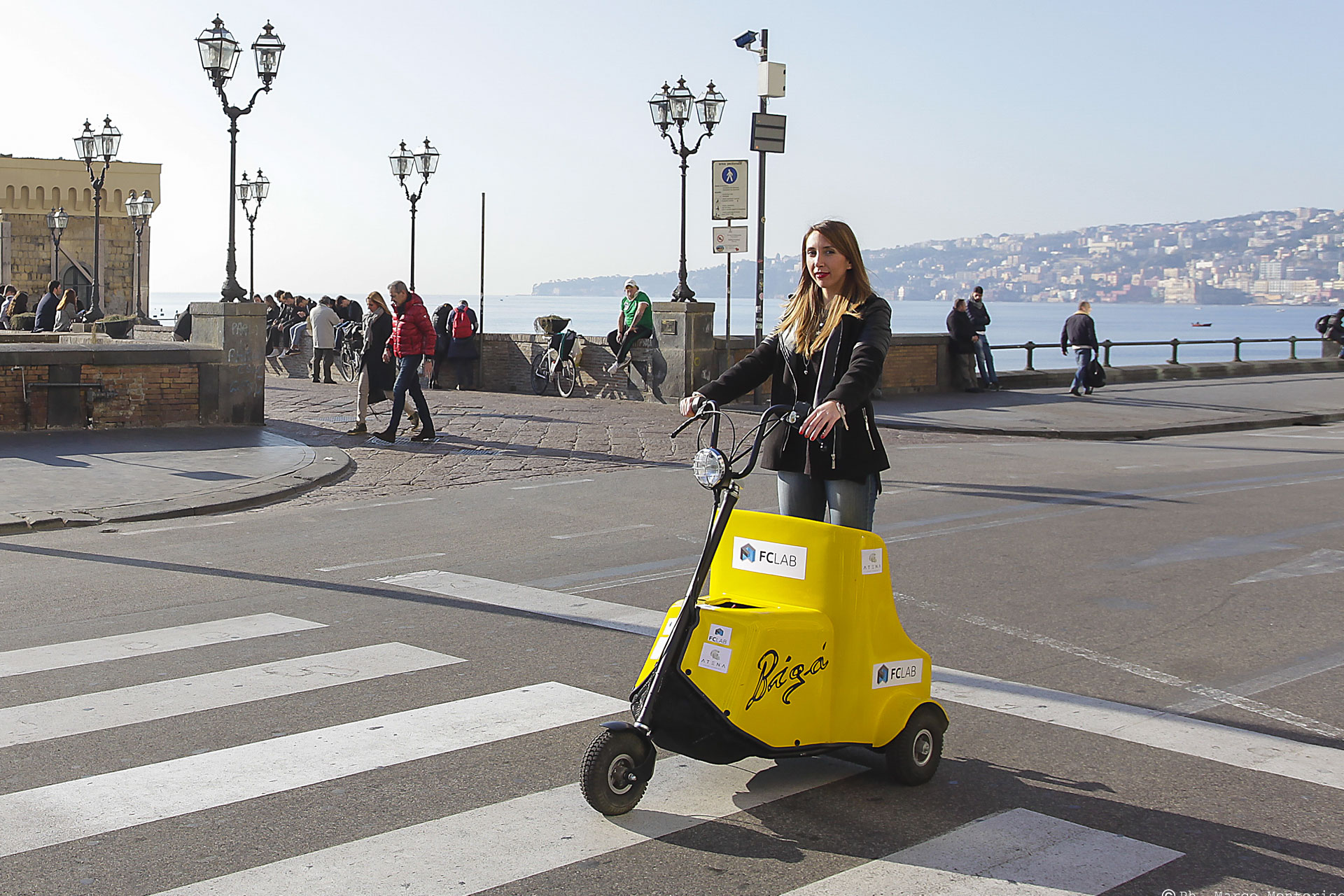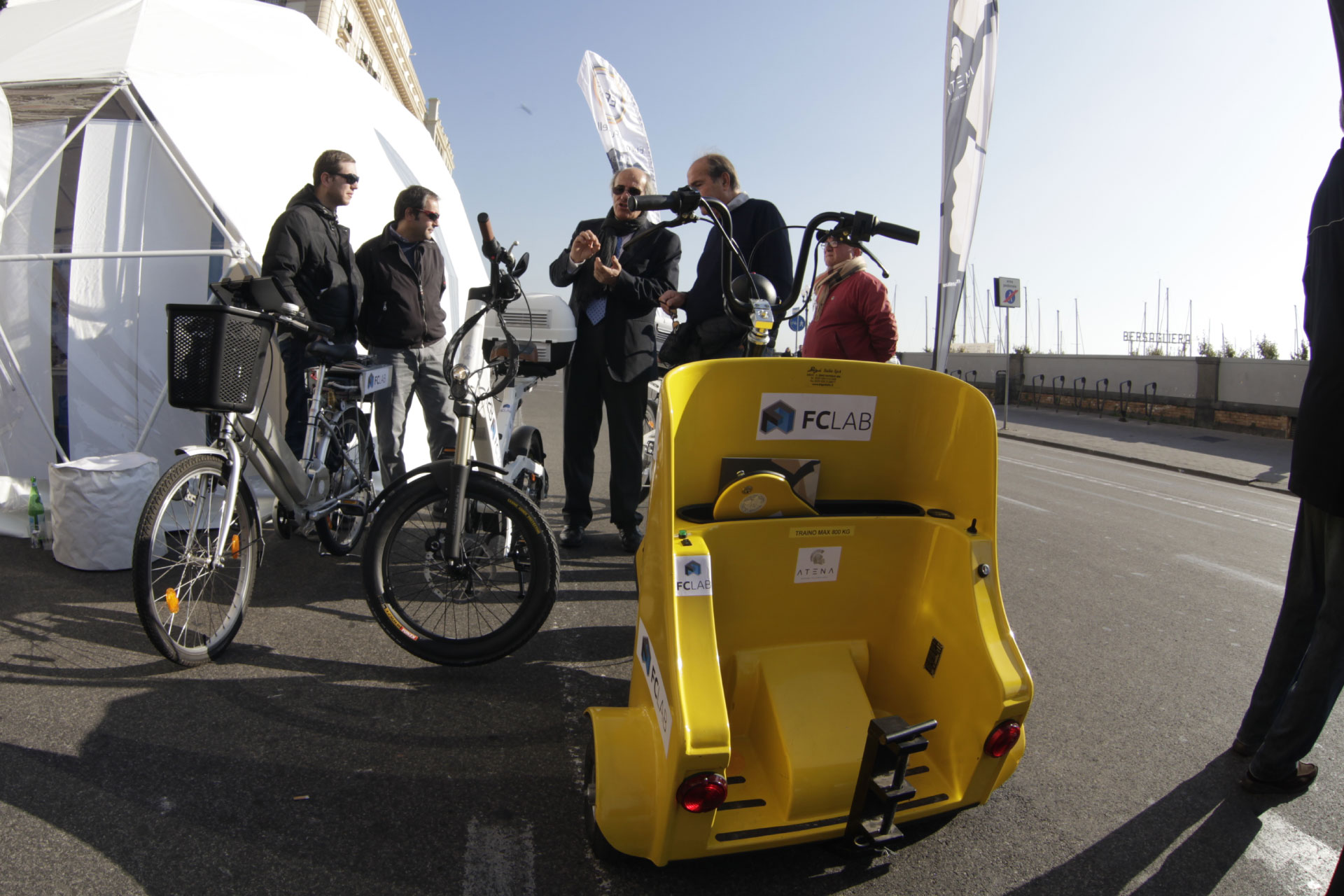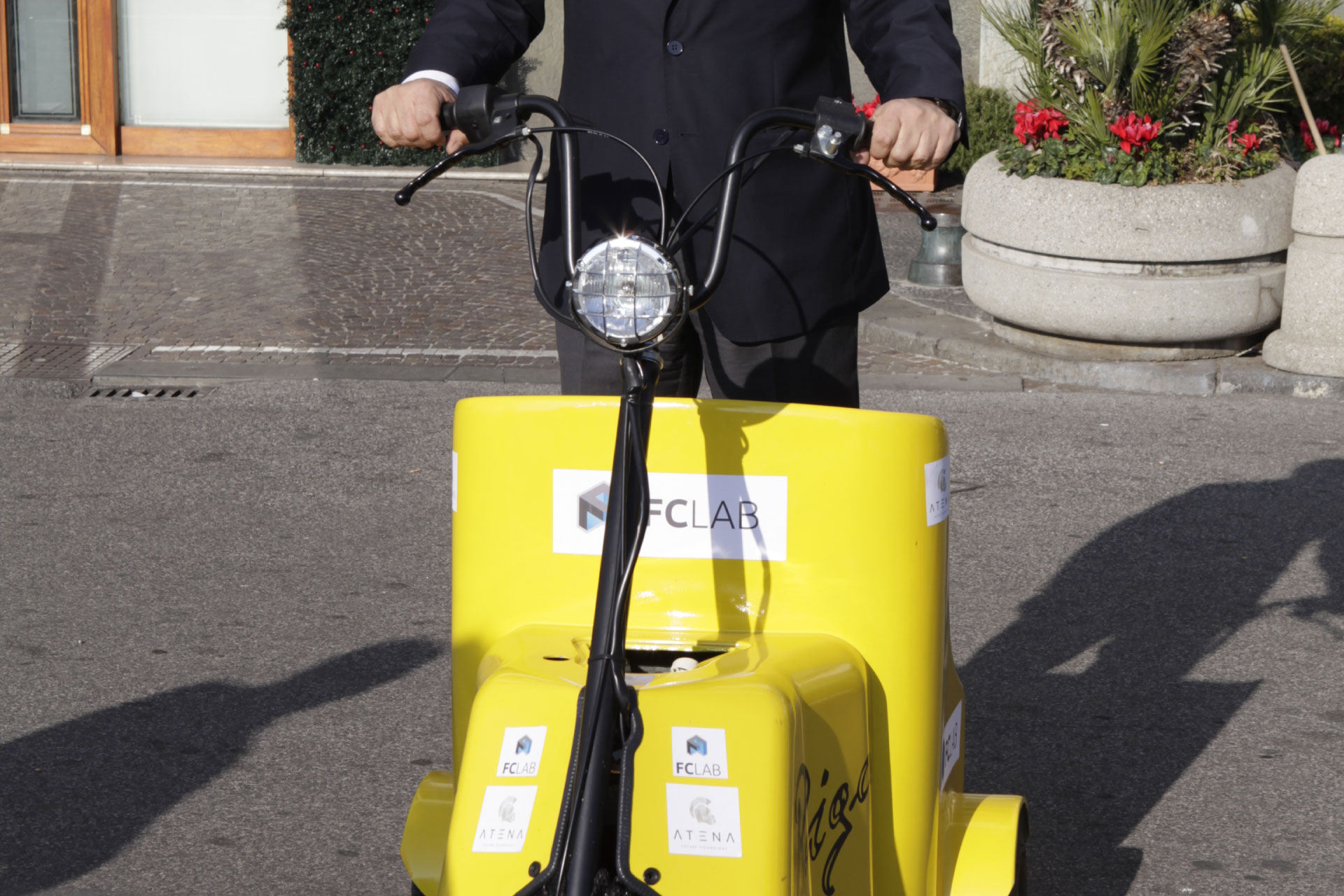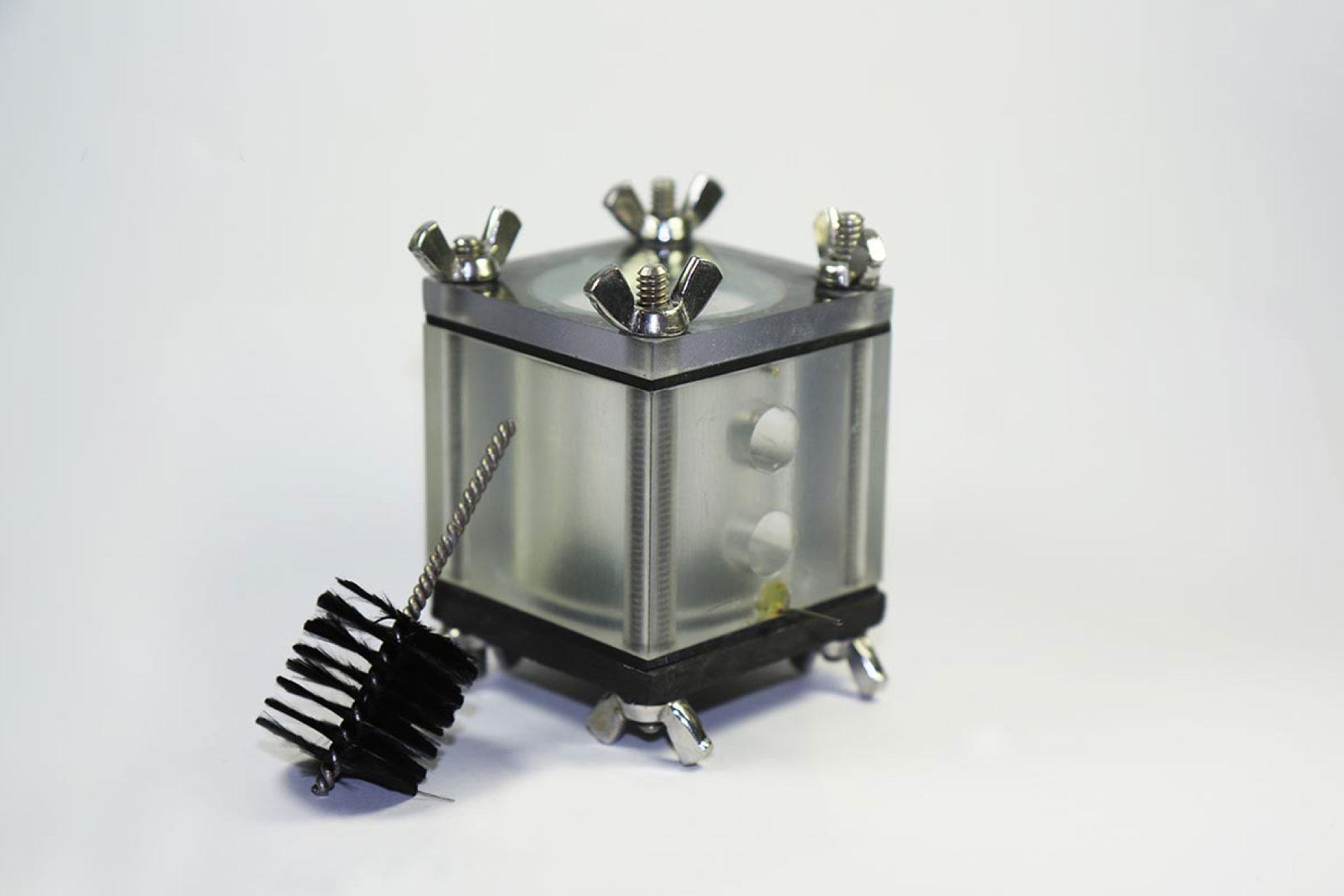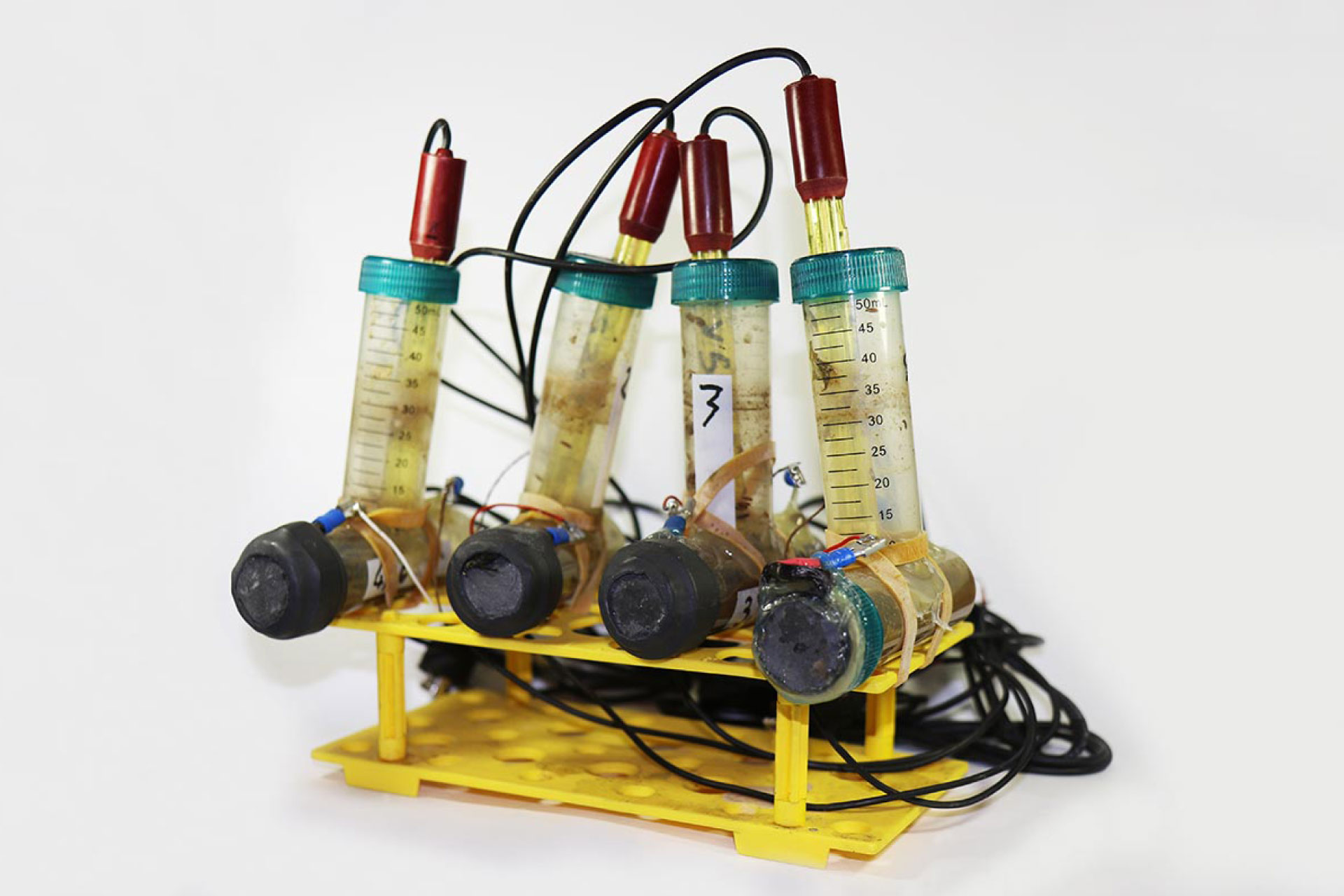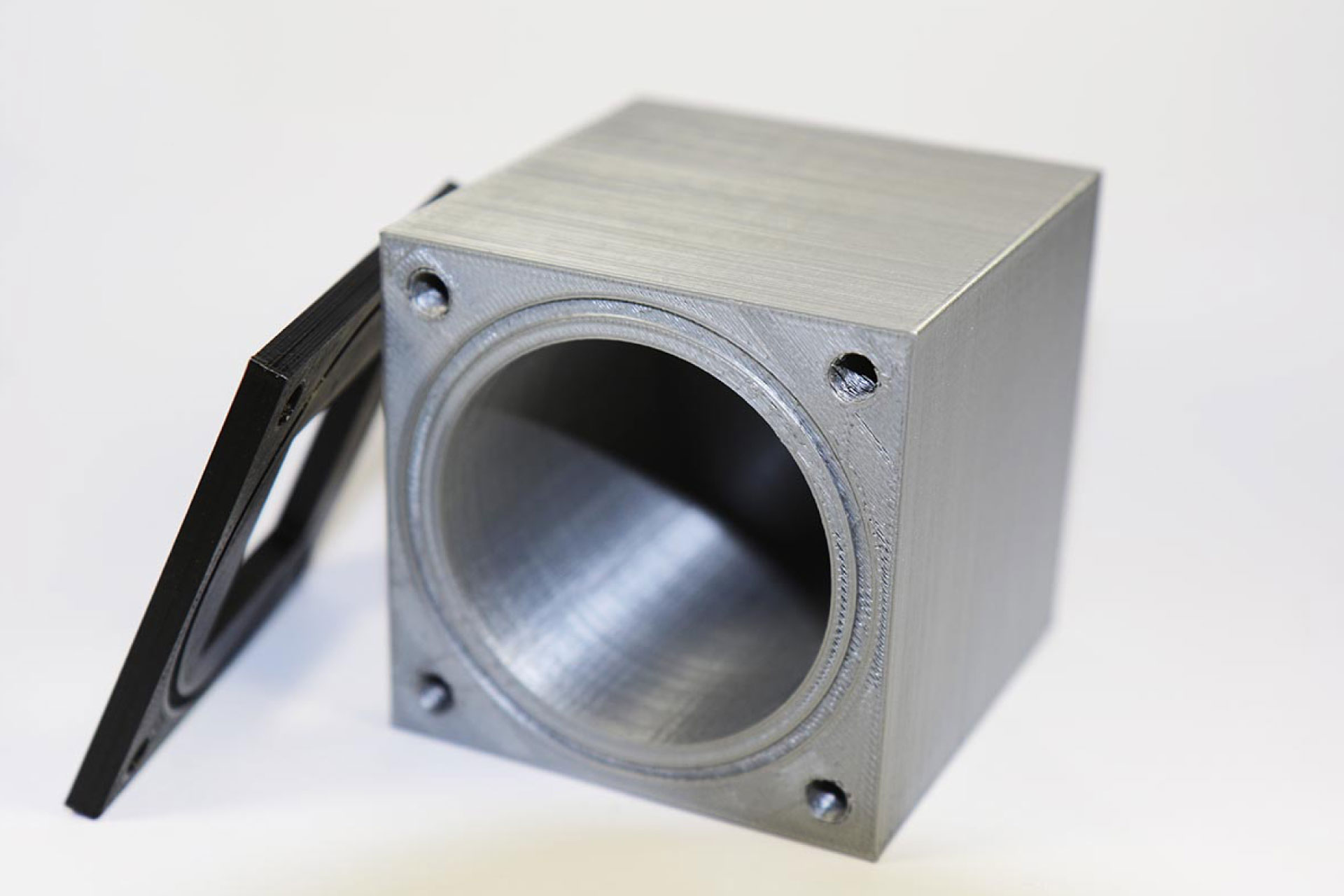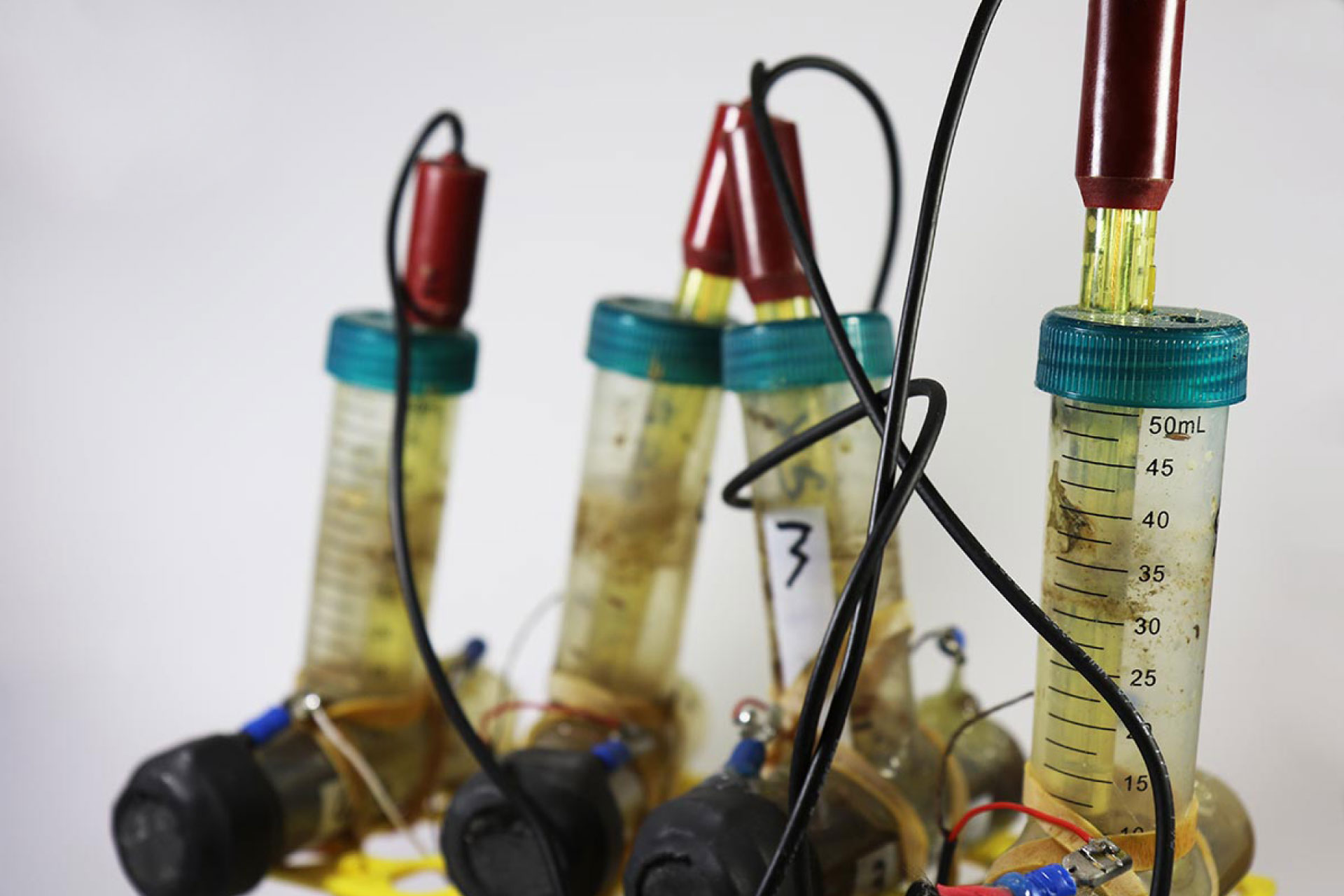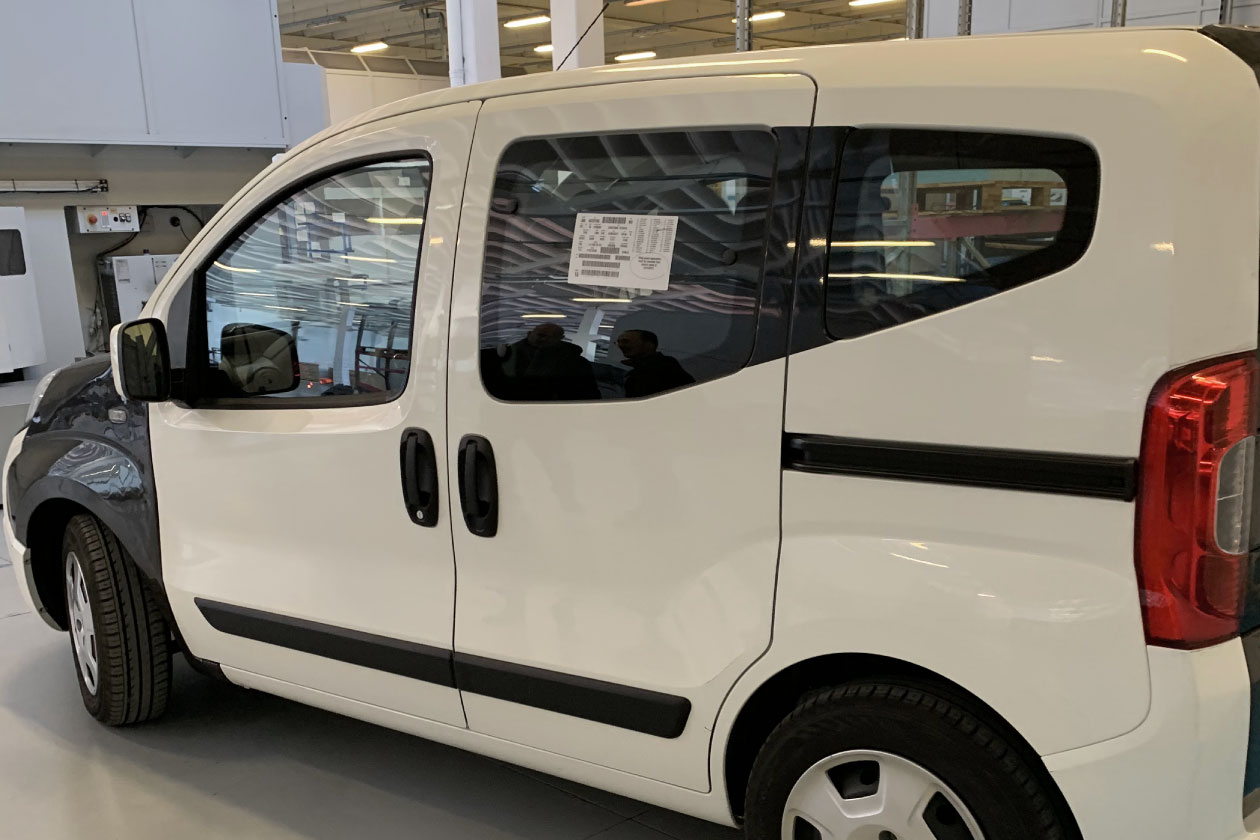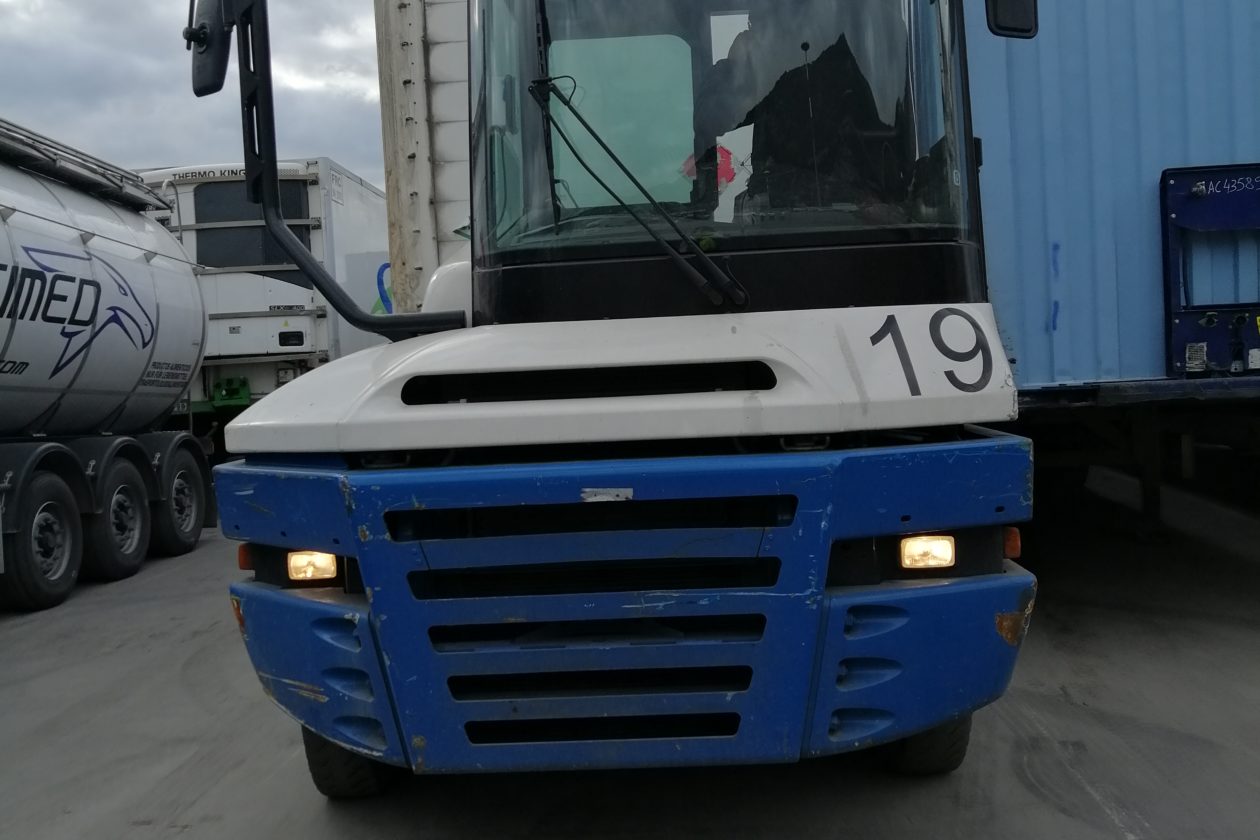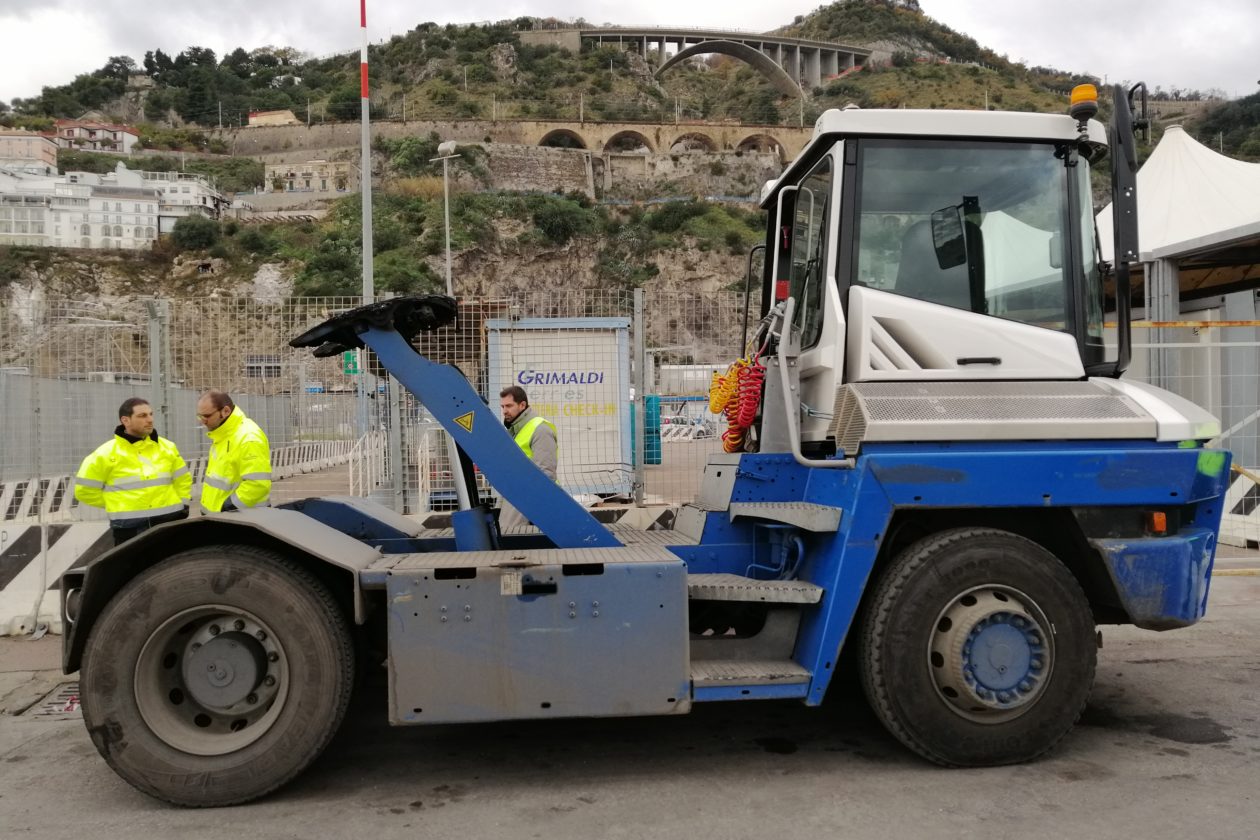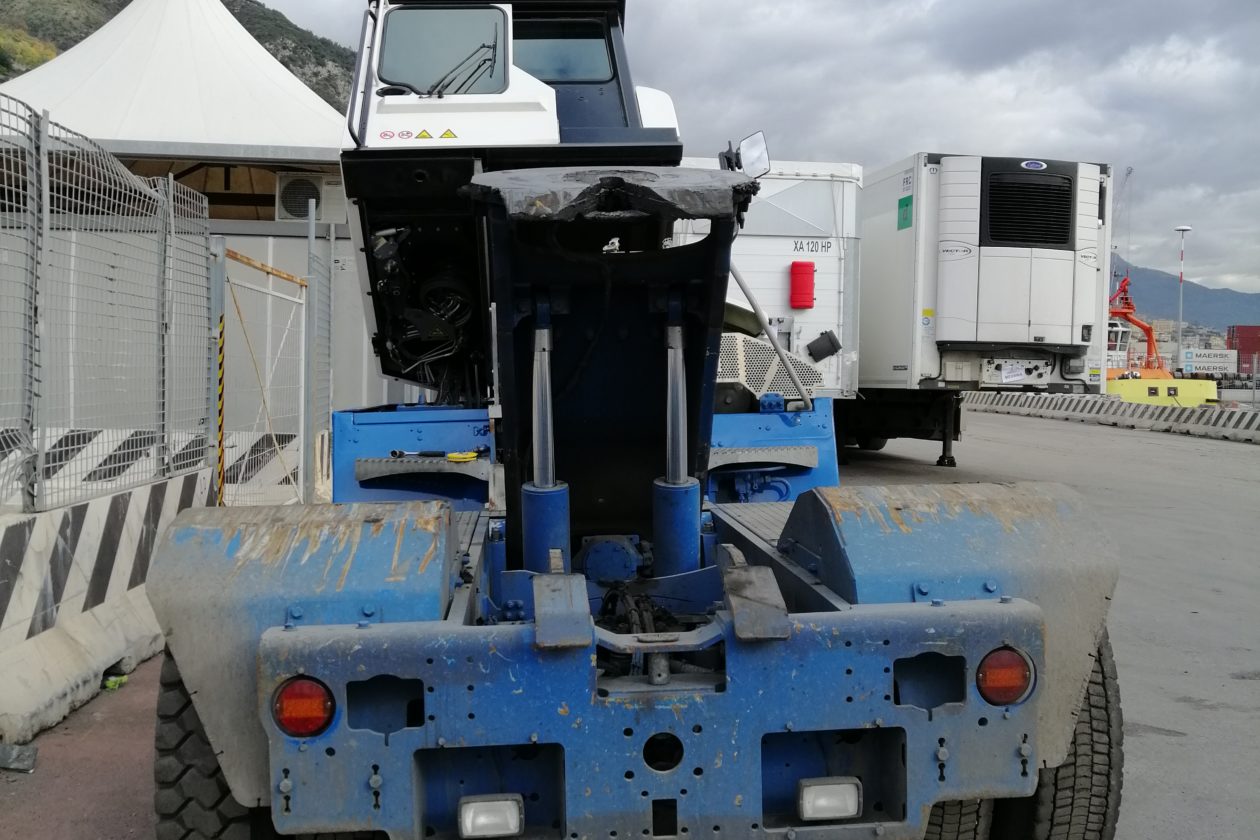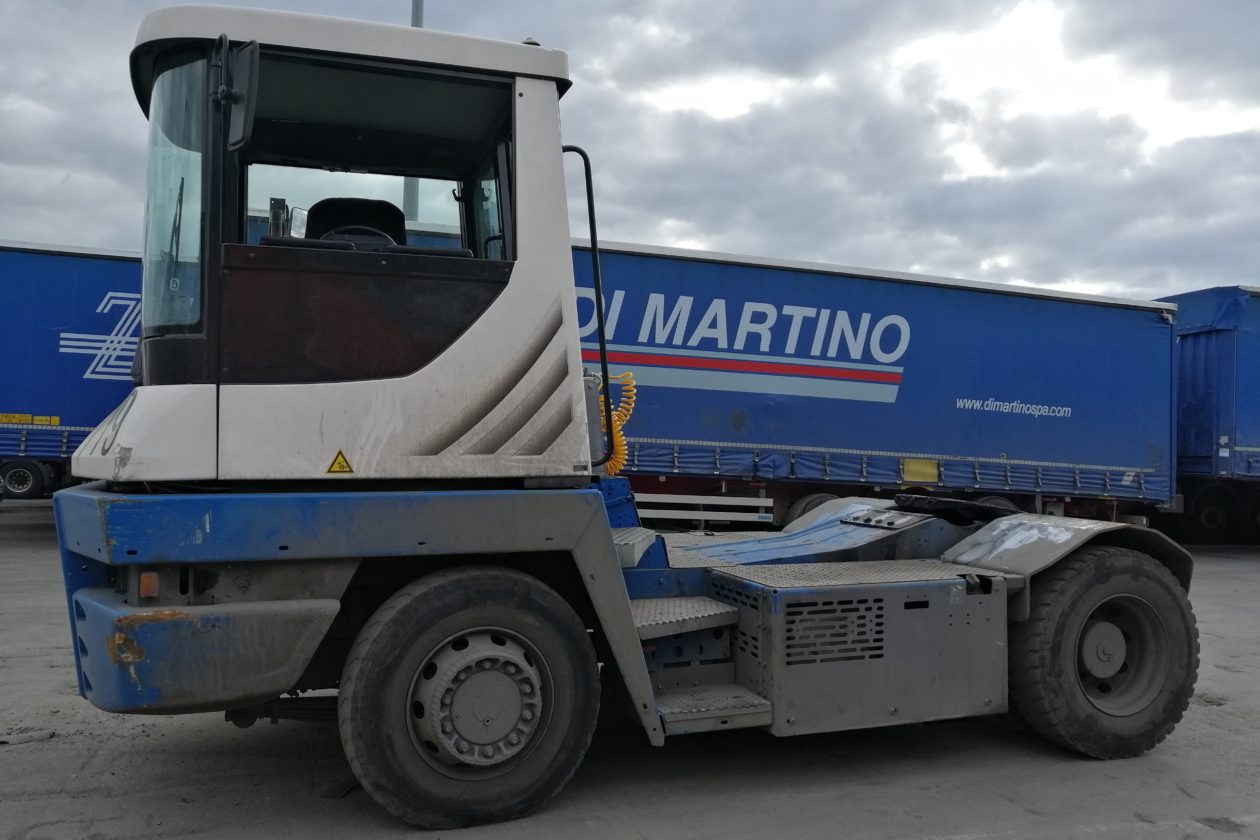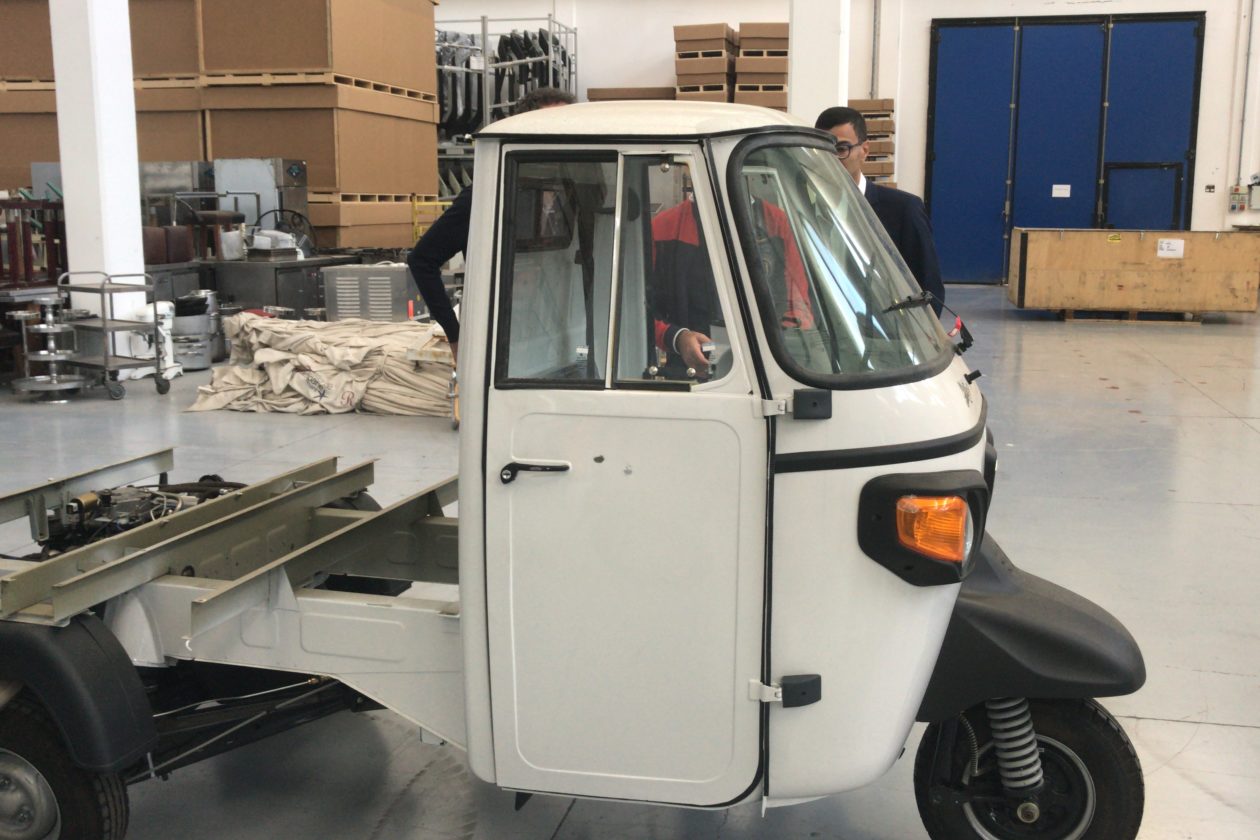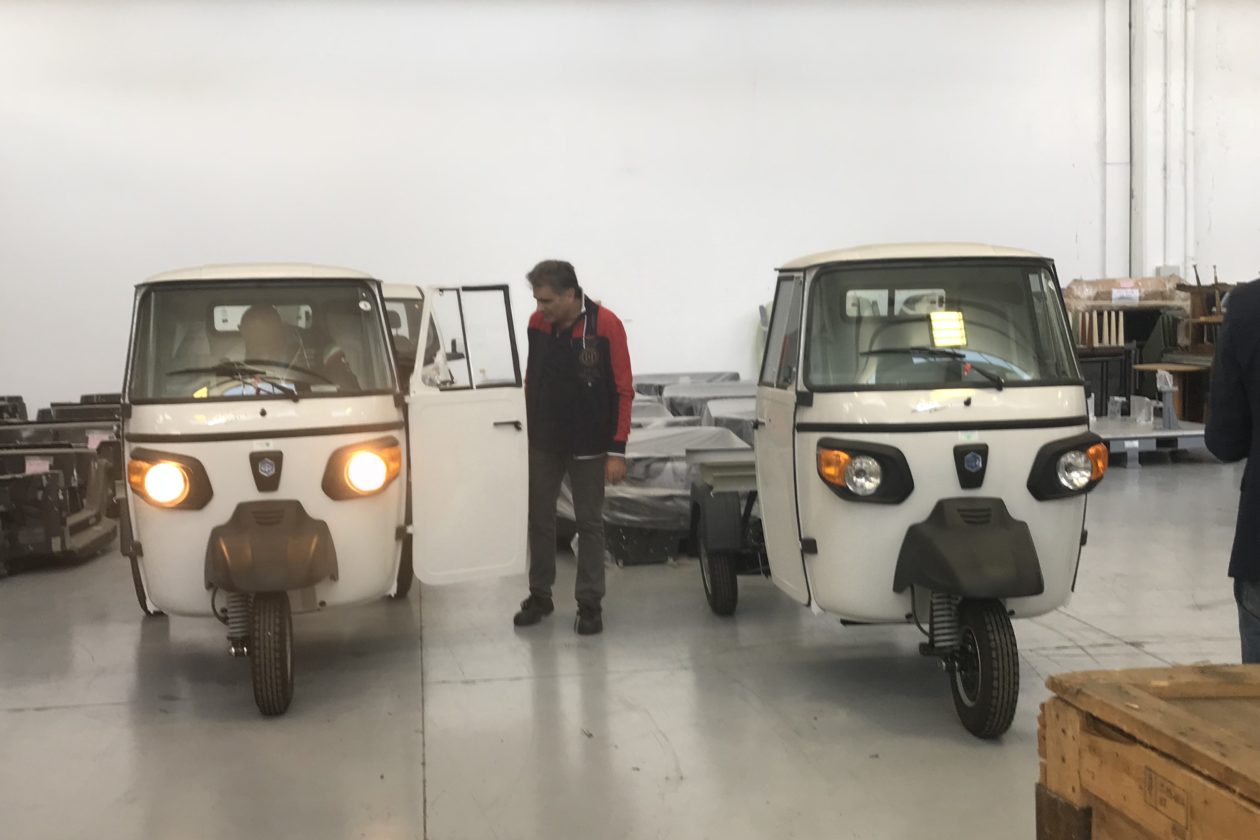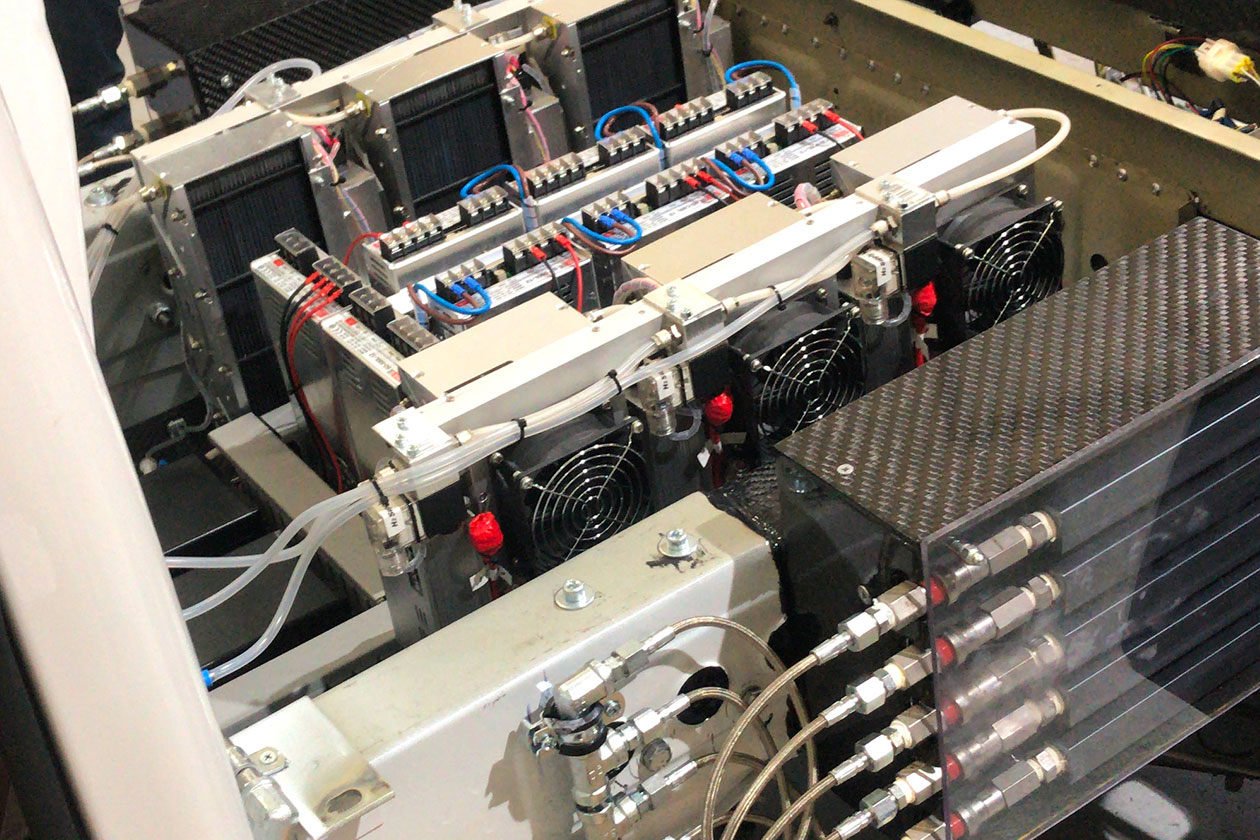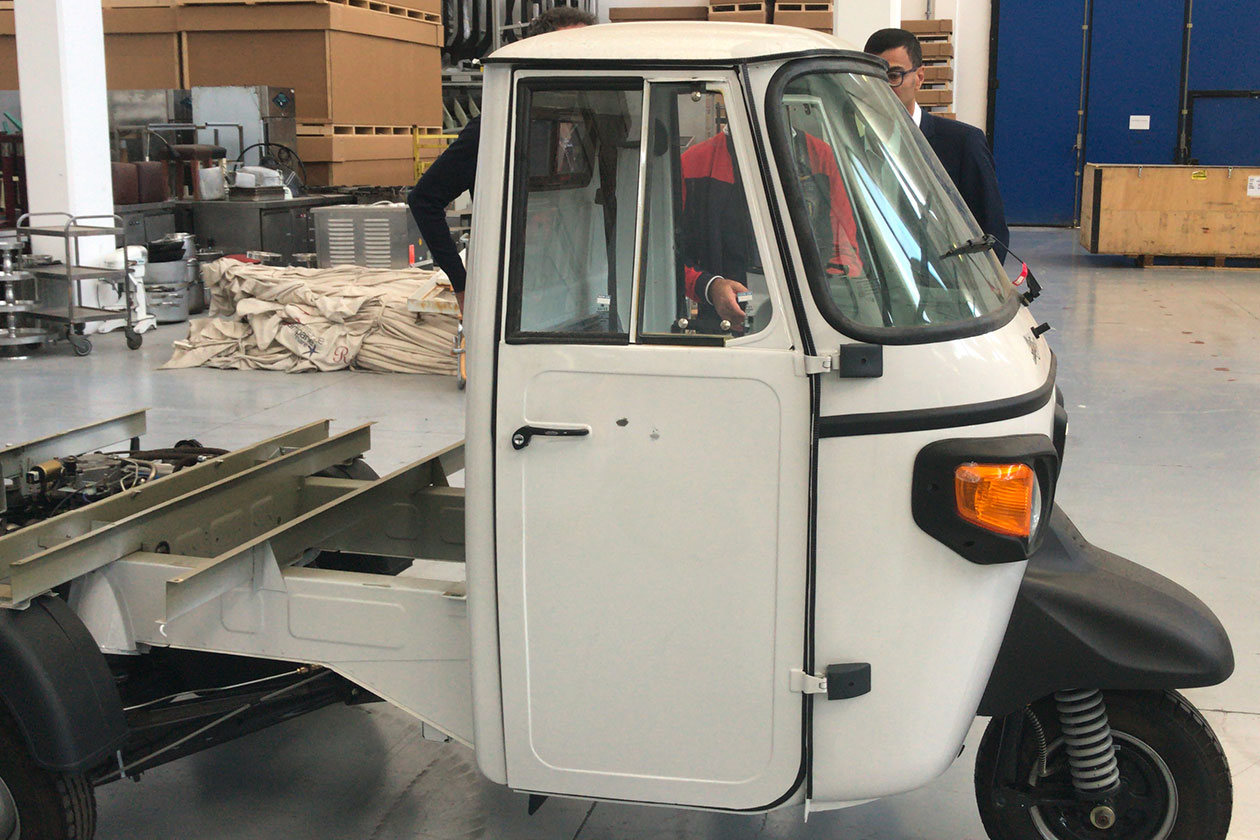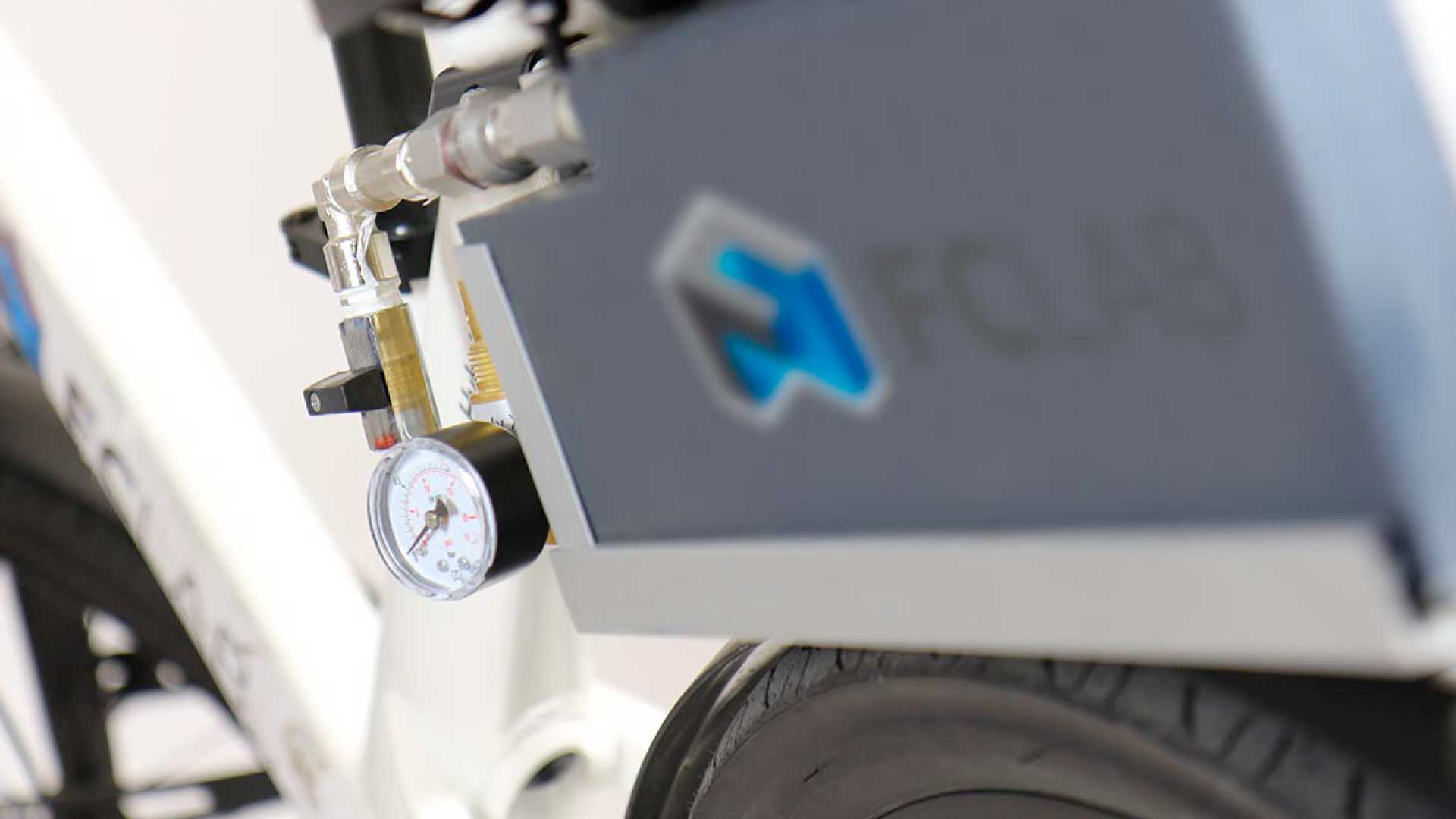
Technology
Atena accelerates innovation, deploys solutions for sustainable and accessible, intelligent and interconnected mobility.
Atena technology can sustaine Fuel Cell Electric Vehicles deployment without large investments in refueling infrastructures. FCEV light vehicles (e.g. bicycles, scooters and micro-cars) could be quickly refilled by replacing metal hydride cartridges. Cartridges recharching/refueling can be accomplished by using automatic dispenser or by door to door service.
HYBYKE | HYSCOOTER | HYBIGA | MICROBIAL FUEL CELL | YARD TRUCK | HYAPE
HyBike
HyBike is a hydrogen powered e-bike. A fuel cell transforms directly the hydrogen into electric power for the motor with water vapor as the only byproduct. Hydrogen is stored safely and at low pressure in two cartridges mounted on the rear of the vehicle enabling a riding range of more than 100km, which would be unattainable with traditional batteries.
HyScooter
HyScooter is a plug-in fuel cell electric scooter equipped with a 2kW electric motor (equivalent to a 50cc traditional scooter). It is equipped with a hybrid fuel cell powertrain that increases range and improve battery life. Moreover, the chosen powertrain architecture allows for components downsizing, reducing costs and total weight. The hydrogen is stored safely in solid solution and low pressure in metal hydride cartridges ensuring a range of more than 120 km.
HyBiga
HyBiga uses the Fuel Cell power unit to enable 12 hours of operation to an industrial vehicle that transports trolleys and goods with more than two shifts. Suitable in airports, stations, ports, greenhouses, farms, resorts and amusement parks.
Microbial Fuel Cell
The MFCs (Microbial Fuel Cells) are innovative biotechnologies that use bacteria in organic waste for the production of electricity and for the reduction of BOD and COD.
Organic waste recycling takes place through an anaerobic digestion process that lead to both bacteria nutrition and electricity generation with the direct conversion of chemical energy into electricity.
Yard Truck
ATENA will deploy a new industrial Fuel Cell vehicle for port operation. Hydrogen and Fuel Cell Technologies in new zero emission Yard Truck.
Follow H2Ports at the Research Project website: https://h2ports.eu
The H2Ports project will demonstrate and validate at the Port of Valencia in real port operations two innovative solutions based on FC technologies and a hydrogen mobile supply station specifically designed for the project. A Reach Stacker to be tested in MSC Terminal Valencia and a Yard Tractor to be tested in Valencia Terminal Europa (part of Grimaldi’s group) have been selected as those specially fitted to the use of Fuel Cells in port facilities.
HyApe
A project working in progress, regards the conversion of a classic three wheel car.
The project aims to introduce and test, novel road freight and passenger transport services for realizing efficient, safe, secure and environmental friendly urban mobility.
These mobility services use innovative and ultra-light electric vehicles able to ensure zero emissions, long endurance, low investments in infrastructures and multi-modal transport








